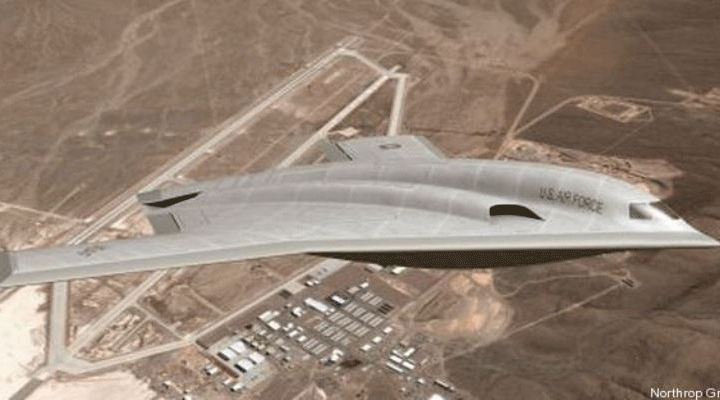Russia has sent two of its most powerful strategic bombers on a visit to Venezuela, and the United States government isn’t too happy about it. The move isn’t really enough to be considered a provocation; it’s more of a probe to see how the U.S. will react.
Predictably, we’ve reacted with manufactured outrage, and a mild, ill-informed panic. The appearance of the Tu-160 “Blackjack” bombers at a Caracas airfield, along with a heavy-lift cargo plane (likely carrying the necessary support systems and repair parts) and a passenger jet (likely ferrying the bombers’ ground support crews) has touched off a war of words, but won’t amount to much else.
“Lift your sanctions”
Secretary of State Mike Pompeo took to Twitter to condemn the move. “The Russian and Venezuelan people should see this for what it is,” he wrote, “two corrupt governments squandering public funds, and squelching liberty and freedom while their people suffer.”
The Russian and Venezuelan governments responded predictably.
Venezuela’s foreign minister, Jorge Arriaza, fired back at the secretary. “It’s outrageous that the US gov’t questions our sovereign right to defense and security cooperation with other countries when @realDonaldTrump has threatened us publicly with a military intervention,” he tweeted. “If you want to cooperate, lift your sanctions against Venezuela.” (Message to Mr. Arriaza: that’s not happening anytime soon).
Russian spokesman Dmitry Peskov said, “It’s not really appropriate for a country half of whose defense budget could feed the whole of Africa to be making such statements.” To that point, the U.S. Department of Defense rightly pointed out that in response to Venezuelan suffering, Russia sends bombers, while we sent the hospital ship Comfort to care for those people forced to flee from President Nicolás Maduro’s repressive socialist regime.
I say it’s not really a provocation because Russia doesn’t need to station strategic bombers in Venezuela to threaten the U.S. The Blackjack has a range of 7,500 miles without refueling. That means it could fly from Moscow to Washington (4,860 miles, give or take) and be halfway across Greenland on its return trip home before it ran out of fuel. Obviously, aerial refueling extends that range.
But strategic bombers don’t drop iron bombs like the Enola Gay did over Hiroshima in 1945. They carry air-launched cruise missiles. The main Russian nuclear-capable missile is the Kh-102, which can carry a 250 kiloton nuclear warhead a distance of 3,410 miles (5,500 kilometers). The Tu-160 can carry up to 12 of them.
No strategic advantage
Let’s do the math (wait a minute… this is national security policy; there’s not supposed to be any math). The Cuban Missile Crisis was an existential threat because in 1962, Intercontinental Ballistic Missiles were not widespread. Intermediate range missiles in Cuba were a completely different story. This is not the case with bombers in Caracas.
It is roughly 3,600 miles from Washington to the North Pole, and another 2,400 miles from the North Pole to Moscow. A Blackjack bomber flies at a cruising speed of 596 mph, although it can reach speeds of Mach 2.05, or 1,380 mph, twice the speed of sound. The Kh-102 missile travels at a maximum speed of 450 mph. Let’s use 430 mph to be conservative.
A Tu-160 leaving an airfield near Moscow to attack Washington, taking a route over the North Pole, would have to travel about 2,600 miles to get within the Kh-102’s range. At cruising speed, it would cover that ground in about four hours and 20 minutes. A Kh-102 missile launched from there would take nearly eight hours to reach Washington. The Blackjack’s crew would be back on the ground and drinking vodka with their wives and girlfriends before the missiles ever reached their targets.
This is the power of strategic bombers. They don’t have to be close to their targets. Thanks to cruise missiles, they have the advantage of distance. To me, routine Russian flights into the Arctic are much more worrying than two bombers sitting on a tropical tarmac. If a bomber flies over the pole routinely, you can never be sure which flight will be the one where he launches missiles.
But two highly visible bombers in Caracas are easy to watch. Any suspicious behavior would sound the alarm all across NORAD. Putting bombers in Venezuela doesn’t provide any Russia with any strategic advantage other than causing the American press, and some of our politicians, to raise our collective blood pressure.
Placing bombers in Venezuela gains Russia nothing militarily, but will weaken President Trump politically. The U.S. will not overreact to this move, because it shouldn’t. But the press has been trained fear all things Russian, so it will interpret a lack of reaction for a capitulation to Moscow. This will be the wrong interpretation, but good luck getting anyone to hear that message through the furor.
So… na zdorovie, Comrade Putin. Well played.




